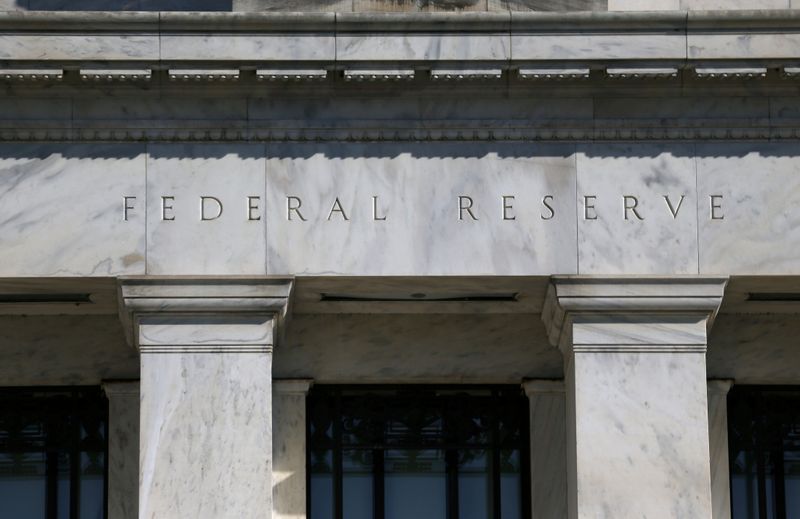By Jonnelle Marte and Ann Saphir
(Reuters) - U.S. Federal Reserve policymakers may soon give new guidance on their plans for asset purchases, including for how long and in what maturities, as they seek to provide more support to markets and the economy, minutes from their November policy-setting meeting show.
"Many participants judged that the Committee might want to enhance its guidance for asset purchases fairly soon," the minutes said.
U.S. central bankers agreed the asset purchases were providing accommodation for the economy and served as "insurance" against risks that could appear because of uncertainty created by the coronavirus pandemic, according to the minutes of the Nov. 4-5 meeting released on Wednesday.
Most participants said the committee should move toward issuing forward guidance that links the pace and makeup of purchases to certain economic outcomes. Policymakers signaled they will end bond purchases before they begin raising interest rates, which were slashed to near zero levels earlier this year and are expected to remain there until at least 2023
"Most participants judged that the guidance for asset purchases should imply that increases in the Committee's securities holdings would taper and cease sometime before the Committee would begin to raise the target range for the federal funds rate," the minutes said. A number of policymakers thought that even after it stops adding to its balance sheet the Fed would take steps to keep it from shrinking, as it did following the end of its last round of bond-buying.
Some participants in the Federal Open Market Committee said they expected the Fed to eventually lengthen the maturity of the bonds purchased, according to the deliberations.
Several policymakers also noted that there are limits to how much support the Fed could provide through purchases and expressed concern about unintended consequences, the minutes showed.
Fed officials voted to keep rates steady at the November meeting and repeated their pledge to do whatever possible to support the U.S. economic recovery.
Powell told reporters after the meeting that officials had reviewed options for adjusting the central bank's asset purchases and decided the current pace of $120 billion a month was providing an appropriate amount of economic support.
However, a recent surge in coronavirus infections and the looming expiration of some of the Fed's emergency lending facilities, after Treasury Secretary Steven Mnuchin asked the Fed last week to return unused funds, may require the central bank to act sooner than planned.
Mnuchin's request surprised Fed officials who said the programs provide a helpful backstop for businesses and municipalities. Fed policymakers may feel pressure to provide more details about their future plans for bond purchases when they meet again on Dec.15 and 16.
Some investors already were raising their expectations that the Fed may increase its government bond purchases or adjust the maturity of bonds purchased to boost support to the economy after a resurgence in COVID-19 infections.

St. Louis Fed President James Bullard said on Tuesday he didn't see a need for adjusting the Fed's bond purchases after the recent success of several coronavirus vaccine candidates, which suggests the end of the health crisis may be in sight.
New York Fed President John Williams (NYSE:WMB) said on Tuesday that the purchases were supporting both markets and the economy and could be adjusted if needed. "I think they're serving their purposes really well right now," he said during a virtual interview with the Wall Street Journal.
Both Bullard and Williams said the Fed could restart the emergency lending programs later if markets come under renewed stress.